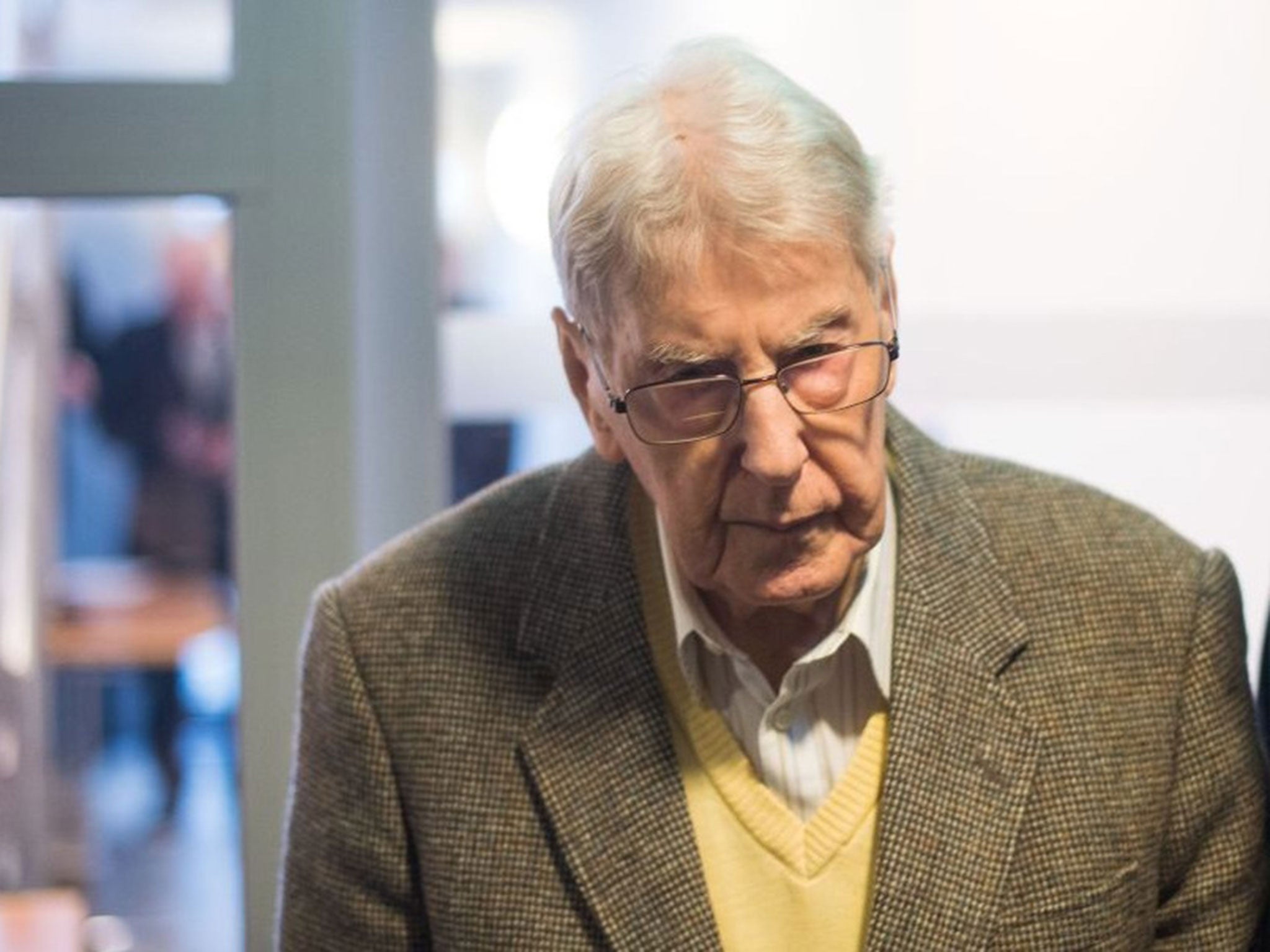Former Nazi guard goes on trial over deaths of 170,000 people at Auschwitz
Former camp inmate Erna de Vries: 'I am not hateful, but it somehow feels like justice to see this man on trial'

Your support helps us to tell the story
From reproductive rights to climate change to Big Tech, The Independent is on the ground when the story is developing. Whether it's investigating the financials of Elon Musk's pro-Trump PAC or producing our latest documentary, 'The A Word', which shines a light on the American women fighting for reproductive rights, we know how important it is to parse out the facts from the messaging.
At such a critical moment in US history, we need reporters on the ground. Your donation allows us to keep sending journalists to speak to both sides of the story.
The Independent is trusted by Americans across the entire political spectrum. And unlike many other quality news outlets, we choose not to lock Americans out of our reporting and analysis with paywalls. We believe quality journalism should be available to everyone, paid for by those who can afford it.
Your support makes all the difference.A 94-year-old who was a guard at the Auschwitz death camp has gone on trial in Germany accused of playing a part in 170,000 murders.
Former SS sergeant Reinhold Hanning has admitted he was a guard at the Nazi death camp, but denies that he was involved in the mass killings there – maintaining that he was stationed in the part of the camp where the gassing of victims did not actually take place.
But prosecutors argue that all guards helped the camp to function and that during the so-called “Hungarian action” in 1944 – when hundreds of thousands of Hungarian Jews were taken to the camp – almost all were called upon to help deal with the vast numbers of people arriving at the killing complex in Nazi-occupied Poland.
A precedent was set for such charges to be brought in 2011 when former Ohio car-worker John Demjanjuk became the first person to be convicted in Germany solely for serving as a camp guard, with no evidence of involvement in a specific killing.
Hanning's lawyer, Johannes Salmen, said that his client acknowledged serving at the Auschwitz I part of the camp complex, but denied serving at the Auschwitz II-Birkenau section, where most of the 1.1 million victims of the camp were killed in four gas chambers.
Prosecutor Andreas Brendel said that guards in the main camp were used as on-call guards to supplement those in Birkenau when new trainloads of Jews were brought in.
“We believe that these auxiliaries were used in particular during the so-called Hungarian action in support of Birkenau,” he said.
Six million Jews died during the Nazis’ Holocaust – their horrendous ‘Final Solution to the Jewish Question’ – with other victims including gypsies, homosexuals, the disabled, and those considered to be political opponents.
Hanning was 20 years old in 1942 when he started serving as a guard at Auschwitz.
Prosecutors said he voluntarily joined the SS aged 18 and participated in battles in eastern Europe during the early stages of World War Two, before being transferred to the camp.
He is understood to have served there until 1944.
Ahead of the trial, Erna de Vries, who was deported to Auschwitz with her mother, said: “I survived, but up until today I don’t know how exactly my mother was killed.
“The last thing she said to me was ‘you will survive and tell what happened to us’.
“I am not hateful, but it somehow feels like justice to see this man, who was working there when my mother died, on trial.”
Erna de Vries had been saved from the gas chambers and was transferred to a labour camp as she was considered a “Jewish crossbreed” because her father was Protestant.
Hanning’s trial, in Detmold, north-west Germany, is the first of four trials of its kind to be held over the coming months.
Additional reporting by agencies
Join our commenting forum
Join thought-provoking conversations, follow other Independent readers and see their replies
Comments